Can you imagine a relationship of years, perhaps decades, in which couples barely address personal and pertinent issues due to the lack of dialogue caused by a taboo that surrounds a topic and deeply influences their live as partners?
This is exactly how many men and women all around the world – but also in Mozambique have lived for many years, when the topic is the menstrual cycle and menstrual hygiene. Let us zoom into the communities of Ntique, Metiquiane, and Ndropa, from the districts of Ancuabe, Chiúre, and Montepuez, respectively, and listen to their stories.
A discovery
Until very recently, menstruation was something very private and to a large extent embarrassing and hushed up among the women of these communities. The men, in turn, considered it an aberration because they did not know what it was all about.
With the arrival of Cabo-Delgado Health Promotion Project times have changed. Today these communities are experiencing a new way of coping with something so natural as the menstruation is. The project has challenged the taboo and changed the perception on the monthly bleeding of women and supported them to manage these days without hiding and embarrassment but offering them private bathrooms built with local material such as bamboo, grass and rope. The private bathrooms for menstrual management offer women privacy and well-being never experienced before. And besides that, women have learned to talk openly about the subject with their partners.
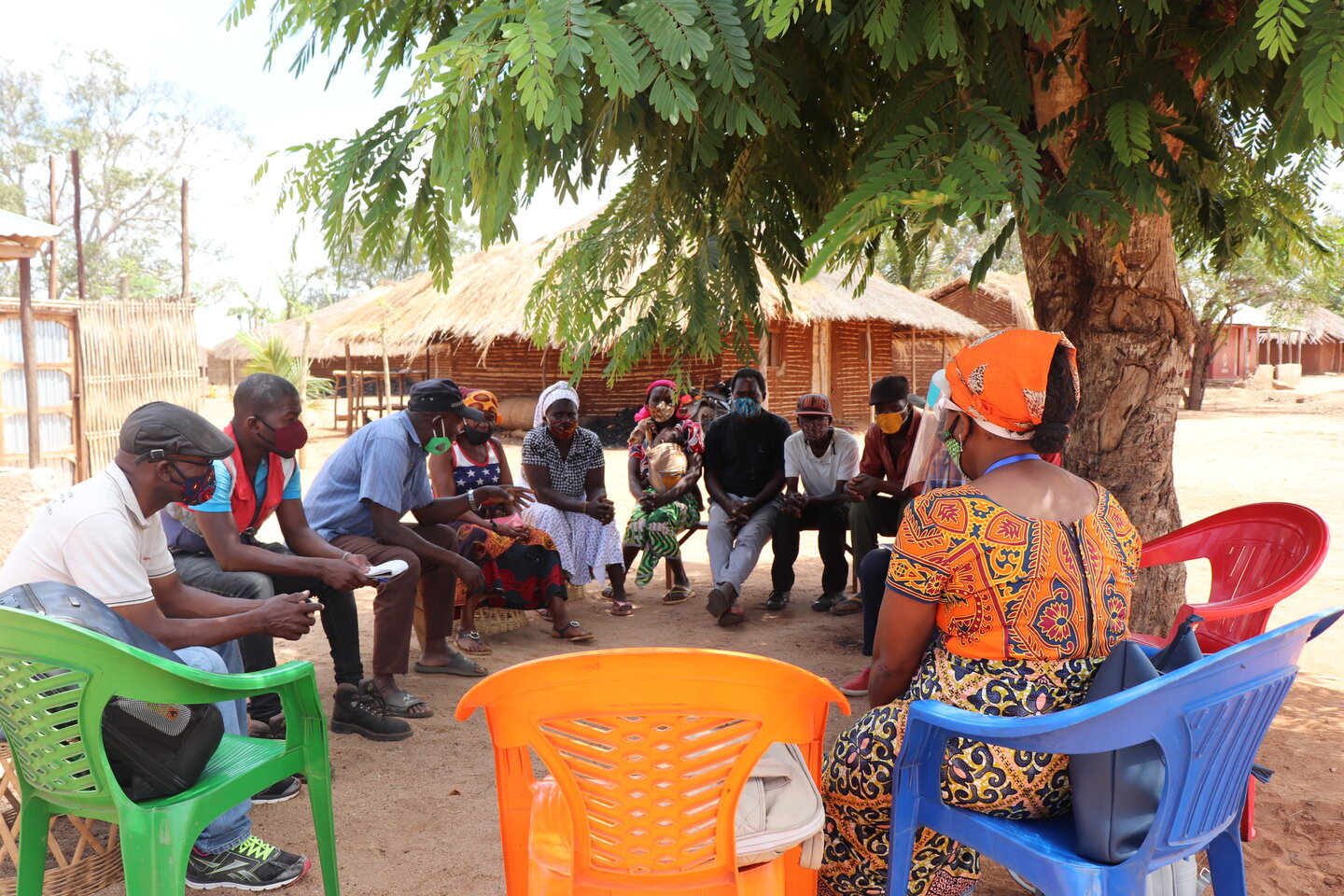
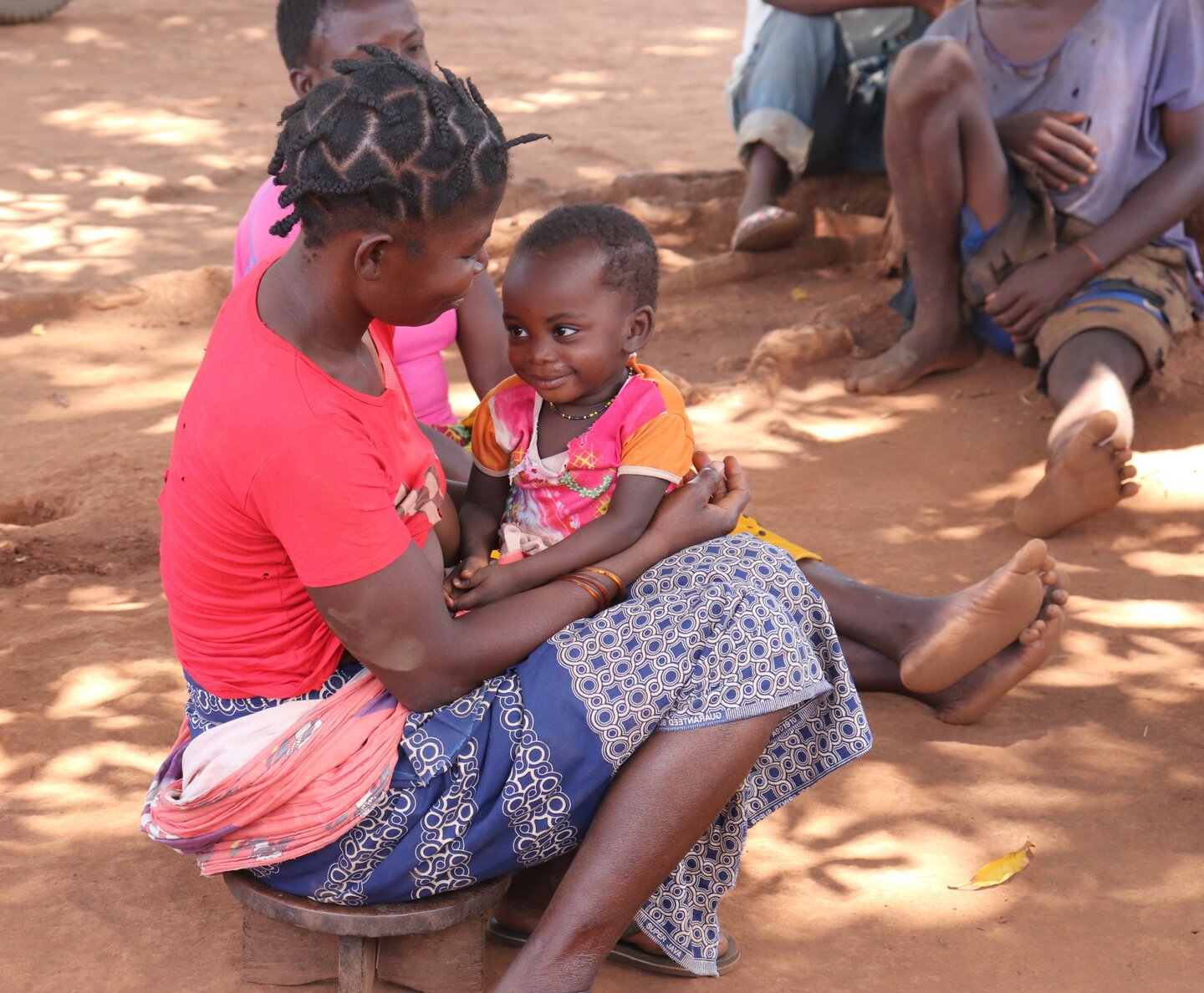
"My husband already buys me things of love”
While breastfeeding her baby of approximately two years, Leontina Marcelino, is pleased with how the project has transformed her personal and conjugal life. "Before the children always asked what the cloths were that I stretched out in the shared bathroom. Now I can stretch them out at will, because no one will see them except me."
Married and mother of four, Leontina felt her partner's indifference and even rejection every time she was in her menstrual cycle, she says. "In the past, my husband would sometimes leave home and would not even accept to eat the food I prepared, or we slept in the same bed. It was a difficult and humiliating situation. Sometimes he threatened to leave me. It was only after the training that he understood that my menstruation is something natural. Now he buys me things of love, like soap and underwear." She ends her story with a smile on her face and a warm glow in her eyes, recalling the change the project has brought to her life.
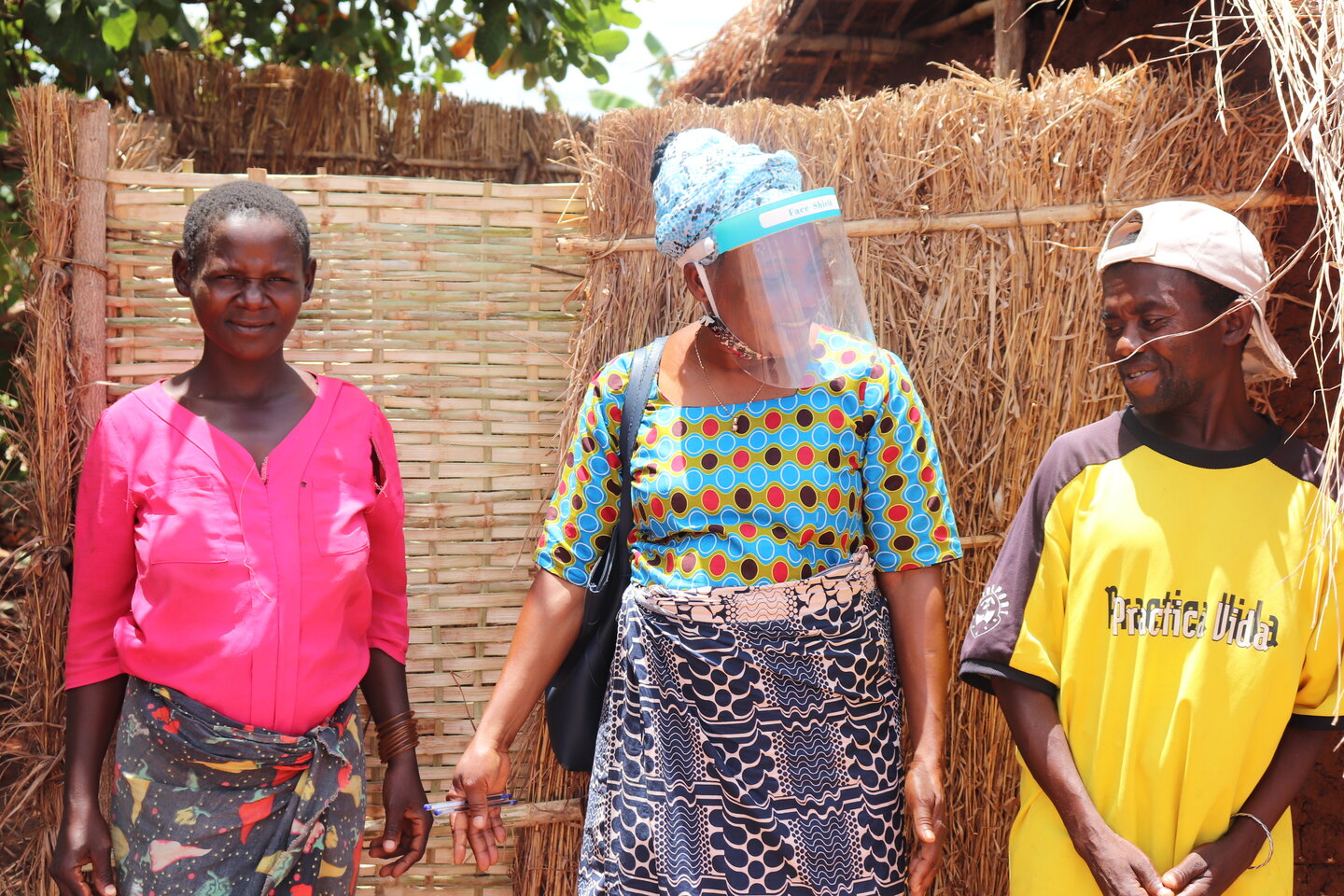
Reinforcing the complicity of couples
Songs and many welcoming whistles mark the contact of the project staff with the community of Nropa, in the Chahil neighborhood, a community 35 kms away from the main village of Montepuez.
While the men are busy collecting bamboo, the women in turn gather grass and prepare the clay to be mixed with it and put between the bamboo sticks. Slowly the new bathrooms arise, the fruit of joint work. Bathrooms for the wellbeing of the communities. Bathrooms that improve women’s health.
It is about six months ago that Laurinda Almeida saw her life change thanks to the new won knowledge of menstrual hygiene management. "Today I don't need to hide in order to deal with my hygiene. I take the time I need in the bathroom, because I know that nobody will disturb me. My husband also knows that our daughter needs special care too when she is in her cycle", says Laurinda.
As the conversation flows, her husband passes by. He is too shy to come close to share his experience, but his wife is overjoyed and happy: "This project has transformed our lives. My sanitary cloths or the ones from our daughter are no longer wet, because they dry badly in a hidden place. Today they dry in the sun and are hygienically reusable”, she adds.
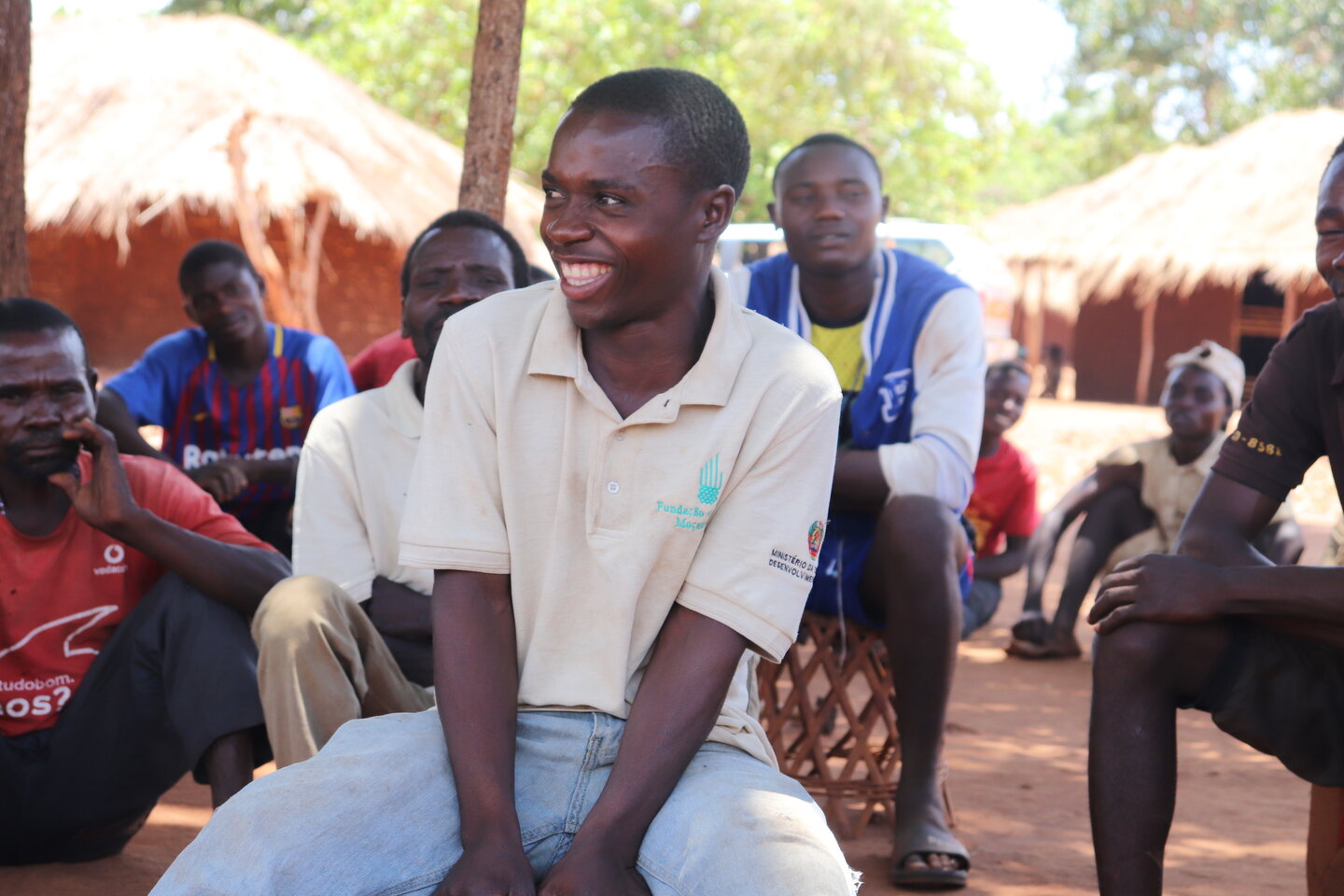
The end of men's stigma in relation to women's menstrual cycle
The men we interview say that their lives changed a lot after the training they had, because many doubts have been dispelled with the explanations about the menstrual cycle of women.
"Before the project, I thought this was an illness. During the menstruation of my wife I didn't stop at home, because I didn't want to be close to her", says a resident of the village Ntique.
Asked about the reason for the contempt, the men say: "We had never had information about the menstrual cycle a woman goes through. It was a matter only between women, the elderly women. It is only now that we understand everything.” The men of Metiquiane's community go further in describing the learning: "Now I realize the need to buy hygiene products so that my wife can take care of herself. Besides that, it is important that she has decent sanitary pads made from cloth so that she is calm during her menstruation", Moises explains.
"If we lack soap, we know that we can use ash as an alternative so that women can maintain their hygiene. And it is important to always have water in the bathroom, because menstruation can start at any time", adds the village chief, Paulo Fernando.
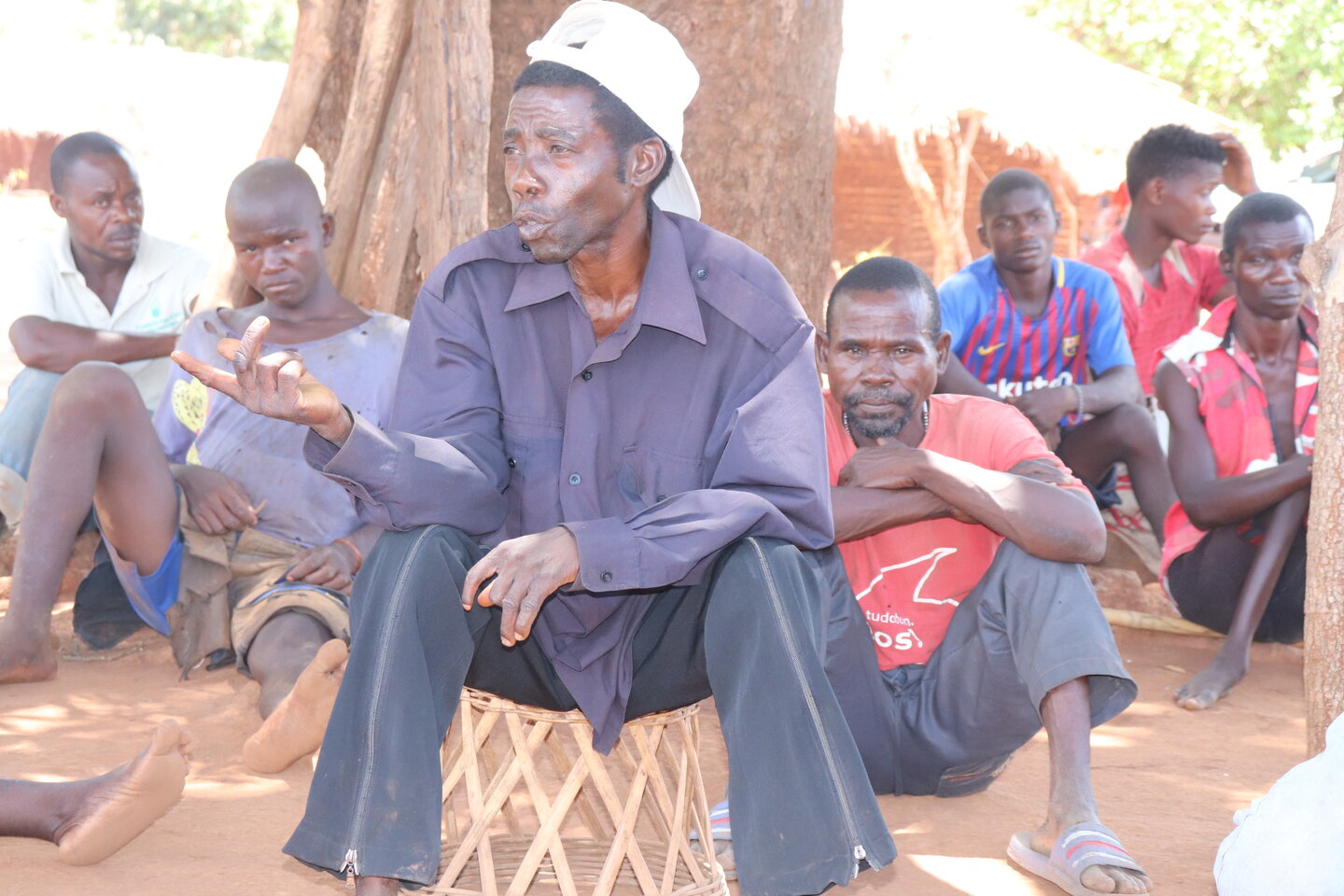
Metequiane, a village with the will to change
25 kms from the main town of Chiure is the community of Metequiane. It is a challenging journey to arrive at our destination with rocky grounds and some steep ascents on the way. The dense vegetation that accompanies us makes us forget for a moment the simplicity of the place. We are here to find out, what has really changed with the project.
Recently declared open defecation free – all households in the community have access to improved latrines and commit to use them – the community of Metequiane has just over 100 families, divided into two neighborhoods that make up the village.
Surrounded by curious little children, we listen to what women and man have to say half a year into the project. The satisfaction expressed on their faces reflect the many "thank you" and compliments shared. It is obvious that the health promotion project is appreciated very much.
"Before we used to bathe in the river and do our needs in the bush. The children would do it anywhere and the mothers wouldn't always take the feces to a distant place. Flies came which then contaminated our food. We often had to throw it away”, says Alfane.
Diarrhea is no longer part of the concerns of this population, because they now know how to prevent it. Another gain of the project is the management of menstrual hygiene, despite the difficulty of understanding it at first.
"We didn't understand why we have to have two bathrooms and a common latrine, and we thought it was a waste of money to buy two soaps. But the training and the daily reality made everything clear. Now we are not ashamed to receive visitors, even on days when women are menstruating, because their sanitary cloths are stretched out to dry in a private place, where only they have access", adds Alfane with a smile on his face, expressing his relief.
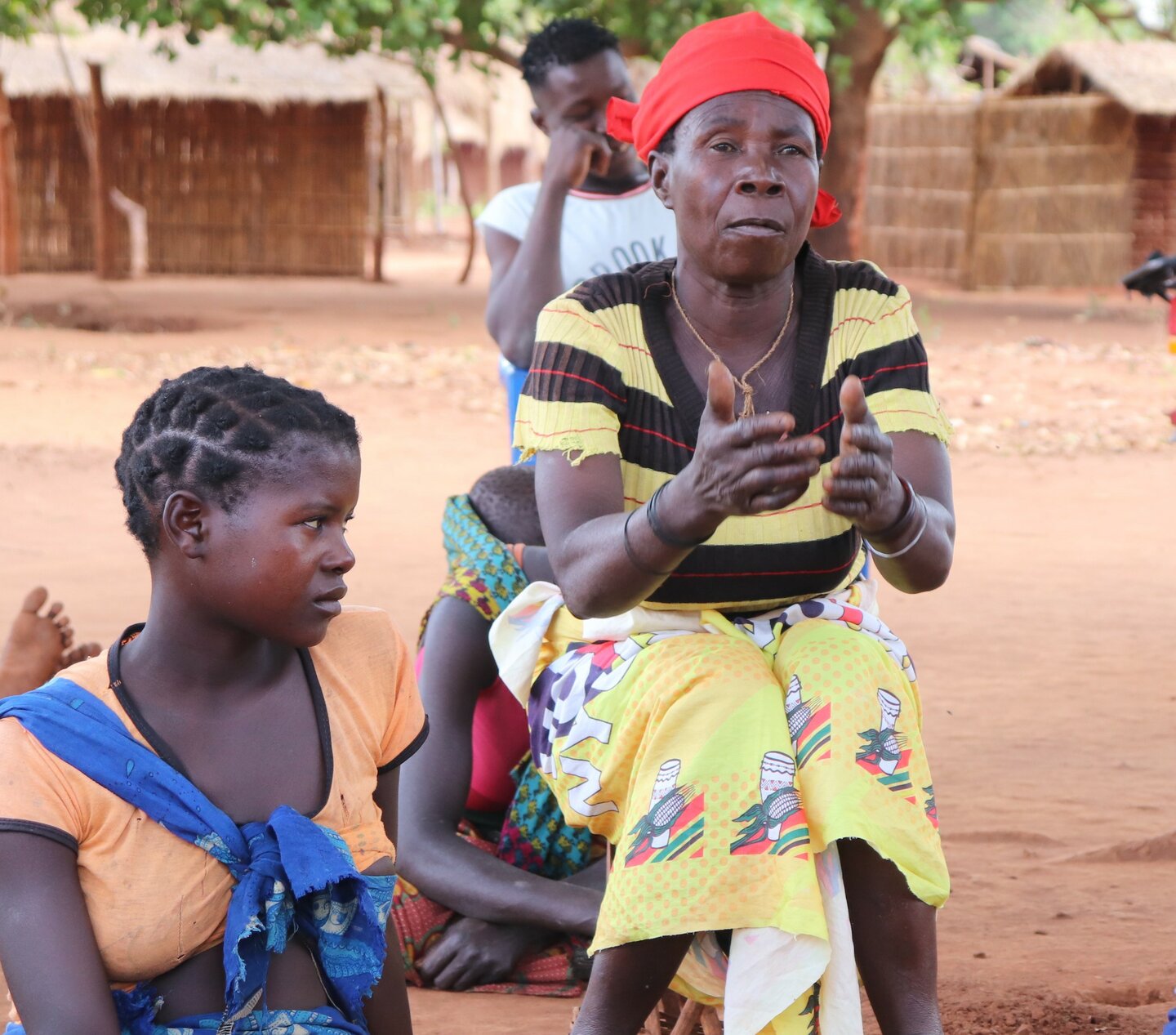
Women's solidarity, a mark of elderly women
Older women in the communities, where the health promotion project is being implemented, do not allow themselves to be limited by their age and are joining the private bathrooms initiative.
Despite of no longer having their menstruation they have the younger generations in mind. Thanks to a separate toilet for the women they can receive visitors and make women feel at ease. This helps the elderly not to feel isolated and taking part in community life.
"My granddaughters can visit me without fear, because they will have a place to change when they have their days. And the women who have to go to the hospital can use it when they need it", says Fátima João, who lives close to the local hospital, with a big smile.
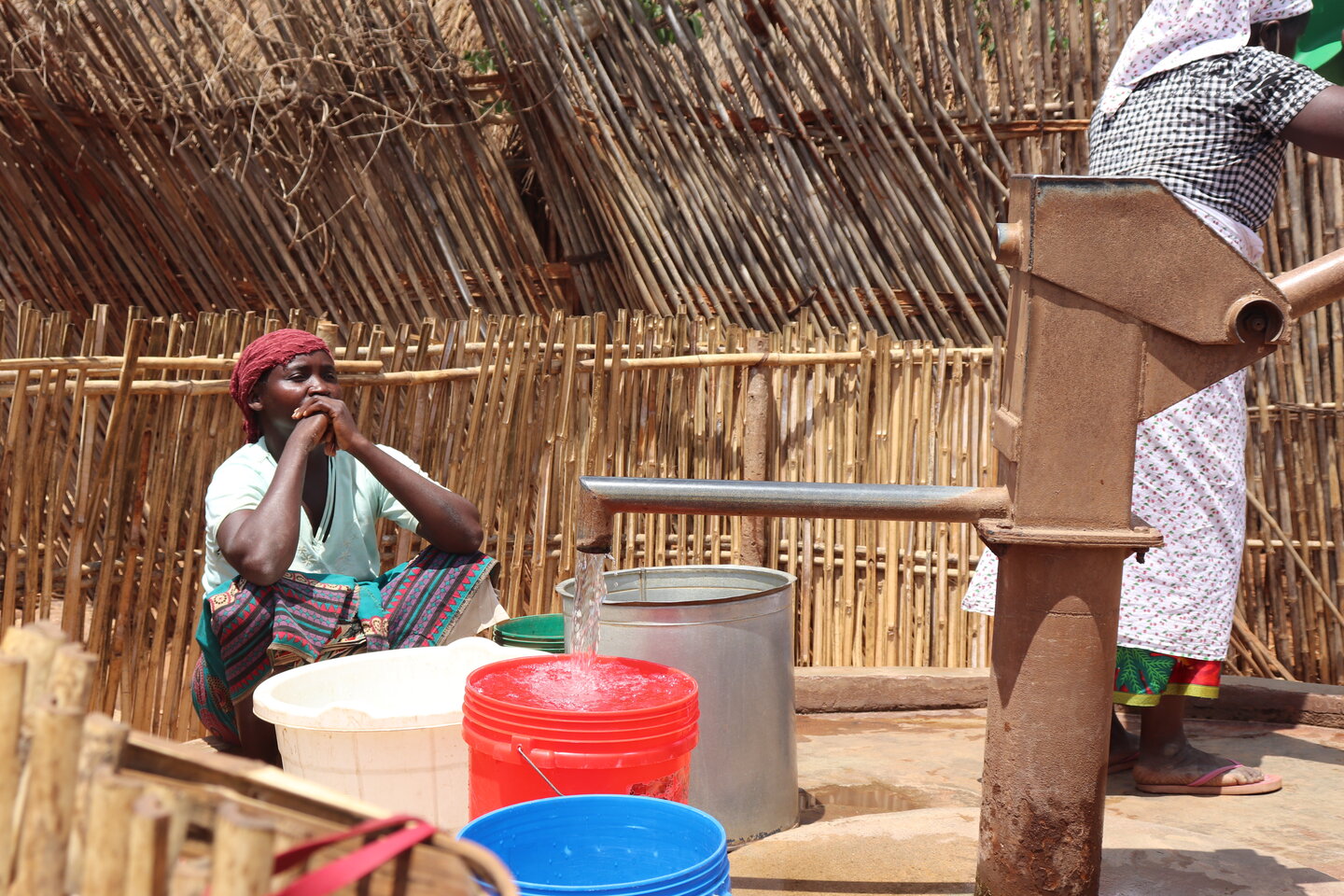
When the lack of water threatens the people
The positive results achieved are very encouraging. But despite the excitement, the communities have a common concern, which may delay the gains achieved so far: The lack of water. This is a common denominator when talking about sensitive issues. For example, in Metiquiane, the women take about five hours every day to get the precious liquid, because the local well cannot cover the need of the entire village. In addition, the rocky and steep path to the well is difficult to master with the heavy load of a filled clay pot. It leaves the women desolate when they stumble, losing and breaking their pots.
Another phenomenon that worries the village chief is the emigration of the inhabitants caused by the lack of water. Asked about the conditions in which the emigrants find themselves in the new place, he is unable to say whether they remember the lessons from the project.
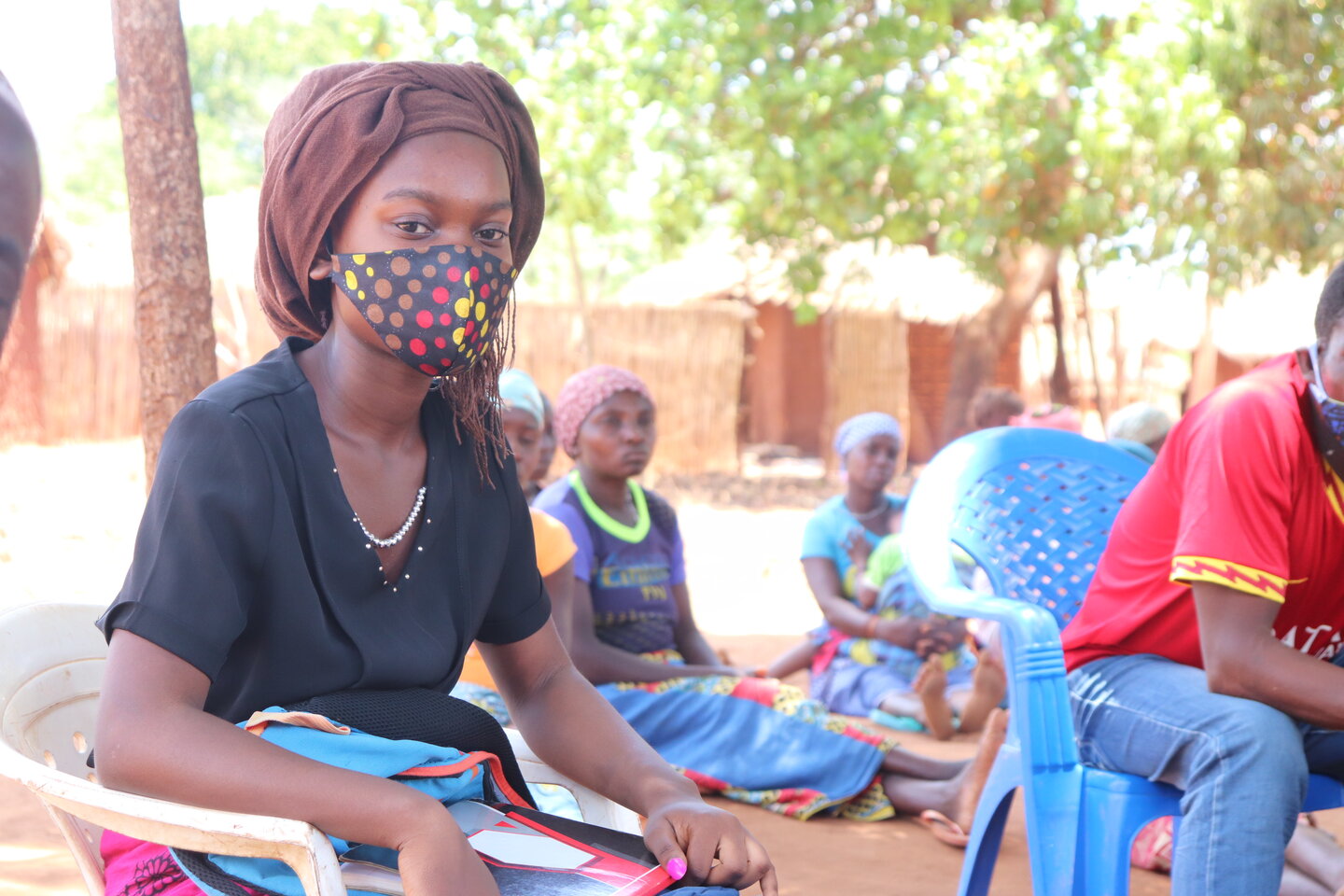
Edgy start – happy end
Those who think that the sensitization work carried out by the staff of Akhily Consultores, the project partner of HELVETAS, was easily accepted in the communities involved, are mistaken.
Today among many laughs, the consultants and villagers remember with much animation the moments of tension they lived until “the strangers” were accepted and able to start the interaction and implementation of the program.
"The first contact was very difficult. People ran away when we arrived, and in no way accepted to talk to us. But thanks to the help of local leaders we were finally able to sensitize women and men little by little and we found the gap we could go into to make them understand that we needed to start working together", Ercília Messias from Akhily Consultores recalls.
It is important to emphasize that some of these communities were doubly implicated: They managed to declare themselves free of fecal contamination plus they erected the private latrines for the management of menstrual hygiene.
The Cabo Delgado Health Promotion Project is funded by the Swiss Agency for Development and Cooperation and implemented by the Government of Cabo Delgado and HELVETAS Swiss Intercooperation in cooperation with Akhily Consultores

